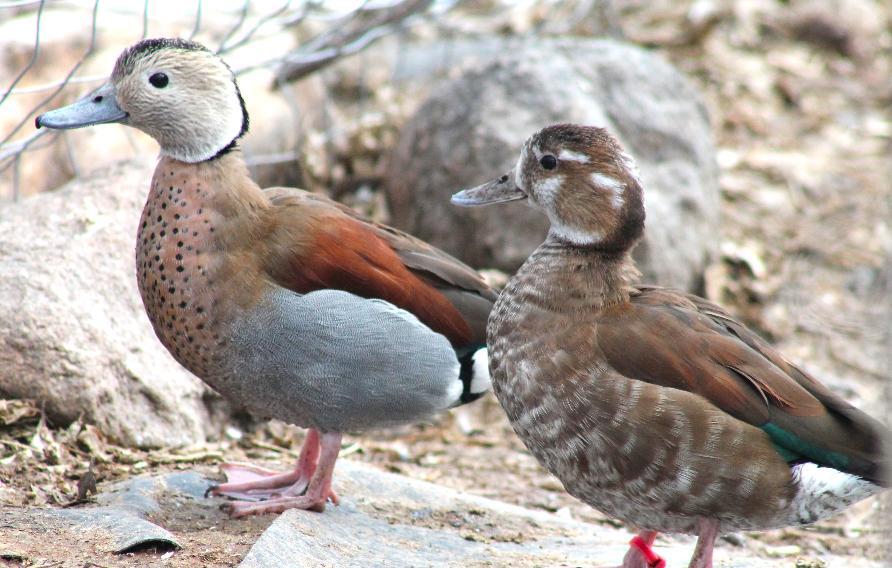Ringed Teal

Scientific Name
Callonetta leucophrys
Alternative Names
Ringed Teal
Measurements
| Feature | Male | Female |
|---|---|---|
| Length | 35–38 cm (14–15 in) | 35–38 cm (14–15 in) |
| Wingspan | Around 70 cm (28 in) | Around 70 cm (28 in) |
| Weight | 190–360 g (6.7–12.7 oz) | 190–360 g (6.7–12.7 oz) |
Status
Native to south-central South America. Not currently threatened and populations are considered stable.
Identification
A small and colorful duck. Males have a chestnut back, pale grey sides, and a pinkish breast with black spots. A black stripe runs from the head to the neck. Females are brown with pale markings and fine barring. Both sexes have a white wing patch, pale rump, dark tail, grey bill, and pink legs. They have long claws that help them perch on branches.
Voice
Males give a soft, lingering peewoo call. Females make a cat-like mee-ow sound.
Diet
Feeds on aquatic plants, seeds, and small insects. It is a surface feeder (dabbler), often seen tipping forward to reach food.
Distribution
Found in northern Argentina, southern Brazil, Paraguay, Uruguay, and Bolivia.
Habitat
Lives in forested wetlands, marshy pools, and quiet streams in lowland wooded areas.
Breeding
Pairs form strong bonds. Nests are usually made in tree holes or sometimes in old parrot nests. The female lays 6–12 white eggs and incubates them for about 26–28 days. Both parents care for the ducklings until they fledge at around 50–55 days.
Wintering
Mostly stays within its range year-round but may move short distances after breeding.
Conservation
Currently not at risk. No major threats reported, but habitat loss and disturbance could affect local populations over time.
